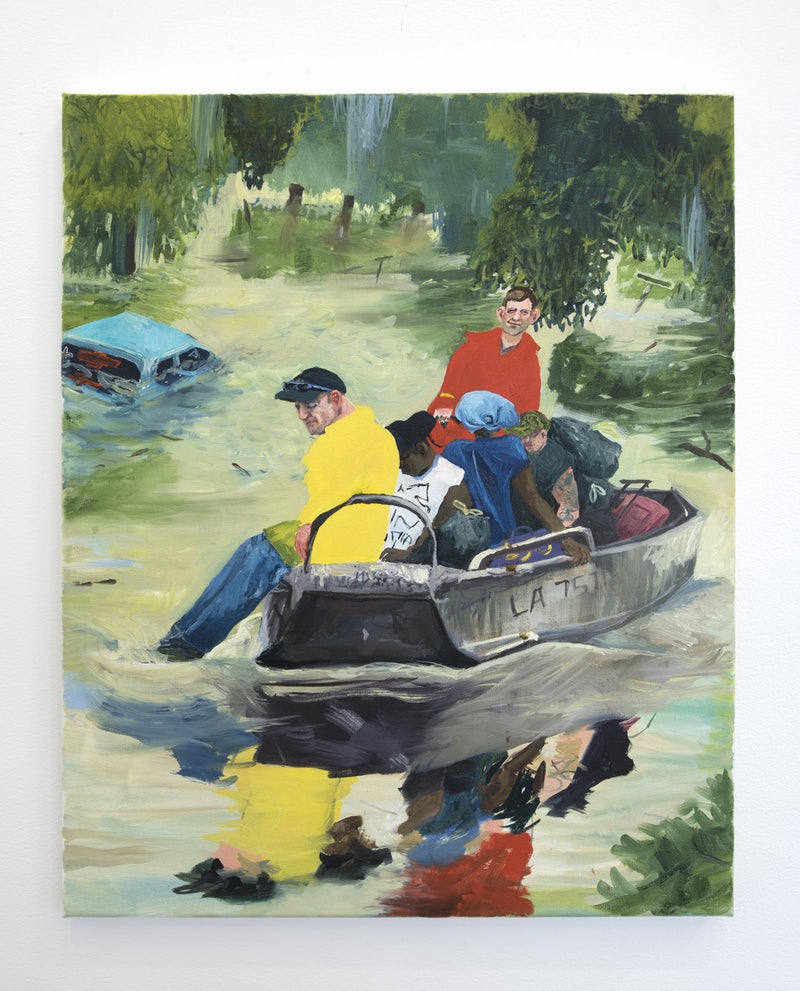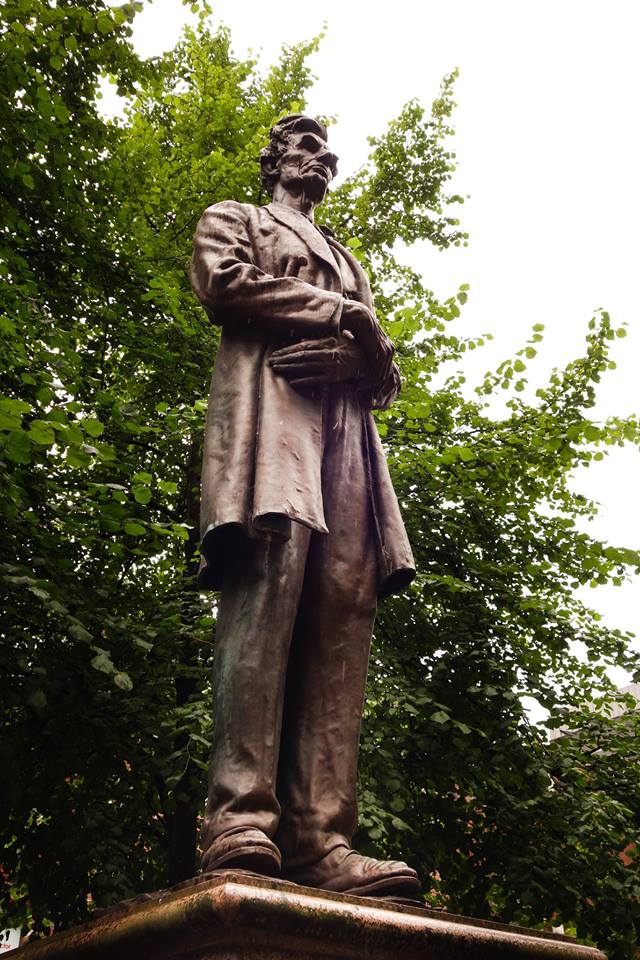Sugar Time
I’m alone one night watching Field of Dreams on TV. As my blood sugar drifts down, the movie becomes more and more profound. Death isn’t the end! We’re too bounded by reason to catch the shafts of light all around us! I look up from the screen at the living room. The bookcase is swaying, the arm chair mumbling quietly to itself. My hands are attached to long, rubbery strips, and the hairs on my arms, light brown and silky, are beautiful and mysteriously meaningful. A drop of sweat runs down my forehead, splashes onto my thigh, and ripples out on the surface of a pool. And I think—slowly and with a dangerous smile—I’m having a really low blood sugar.

 Dupuy-Spencer is “painting the news” as one reviewer has written in New Republic, citing her picture of the Confederate monument torn down last month in Durham, which “amounts to a kind of monument to the search for social justice.”
Dupuy-Spencer is “painting the news” as one reviewer has written in New Republic, citing her picture of the Confederate monument torn down last month in Durham, which “amounts to a kind of monument to the search for social justice.”